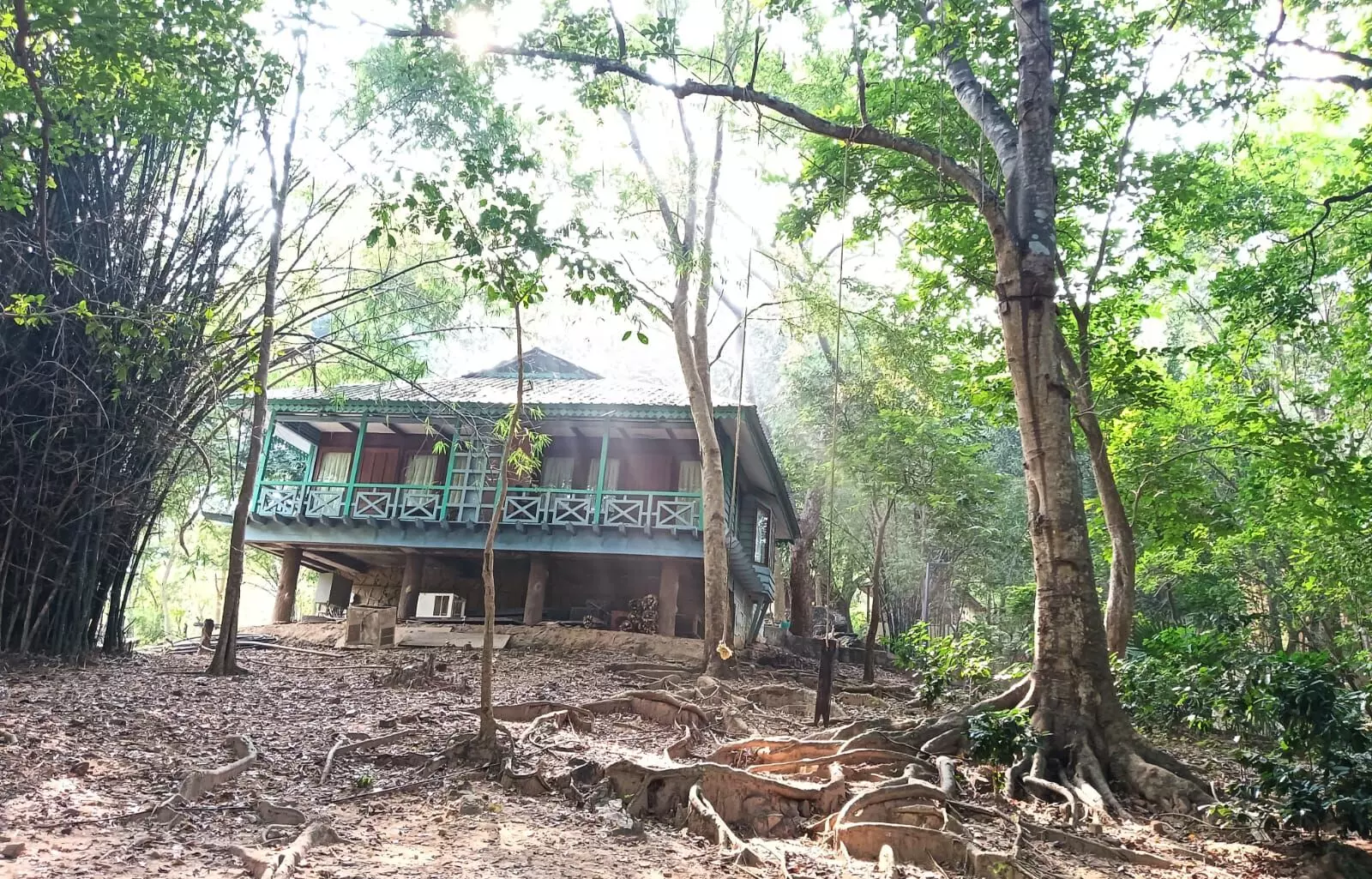Come, detox digitally and rejuvenate in nature’s lap at hilly Tyda, Visakhapatnam
Unless you want to pitch your tent in the villages or fields around, it is best to stay in the Jungle Bells Nature Camp, the only organised accommodation at Tyda.
By Sulogna Mehta
Visakhapatnam: How about spending a weekend listening to the song of the forest rather than the incessant buzzing of cell phones? Instead of the constant pings from social media notifications and the honking of vehicles, here you can feel the serene sound of silence, sometimes punctuated by the chirping of birds and rustling of leaves.
Far from the madding crowd and pollution of the city, at Tyda you can soak in nature, connect with your soul and rejuvenate your system through automatic digital detoxification, as there are no WiFi and cell phone connections here.
The small tribal hamlet of Tyda is just 75 km (a two-hour drive) from Visakhapatnam city, on the Vizag-Araku route, nestled in the hilly forests of the Eastern Ghats. The place is frequented by trekkers and adventure aficionados, nature lovers, botanists and photography enthusiasts, who prefer a unique experience from the over-crowded and the more mainstream Araku Valley.
Spice up mornings with Araku coffee
The main attraction of the place is Jungle Bells Nature Camp, set up by the Andhra Pradesh Tourism Development Corporation (APTDC) in association with the forest department. Do not expect Wifi and cellular phone signals at this place as the purpose of the eco-tourism project is to bring visitors closer to pristine nature, amidst a variety of flora and fauna.
Instead of staying glued to your gadgets and smartphones, you can trek at Tyda through designated routes, hike in the green hilly tracts and watch the sunrise from scenic viewpoints, visit the coffee plantations, and do bird watching in certain months when avifauna abound.
At times, by the roadside, you can find locals selling the famous Araku coffee, spices, bamboo chicken and other forest products like fruits and honey. You can also go sightseeing as the famous Borra Caves is just 15 km and the seasonal Katiki waterfall is around 33 km from there.
The picturesque Tyda station is half a kilometre from Jungle Bells. On some evenings, especially during weekends, enjoy a bonfire and Dhimsa tribal dance organised by the APTDC.
Basic amenities covered
Unless you want to pitch your tent in the villages or fields around, it is best to stay in the Jungle Bells Nature Camp, the only organised accommodation at Tyda.
The types of huts include air-conditioned wooden cottages, log huts and spacious Aerocan AC rooms. Usually, each unit can accommodate two adults and two children. The nature camp also offers a free parking facility, a restaurant with tasty dishes, room service, television, a children’s playground and air-conditioning. The cost of the rooms varies from around Rs 2,000 to Rs 3,000 plus taxes. Jungle Bells is open all through the year and offers different views of nature depending on the season one visits.
The food available at Jungle Bells is fresh, tasty and healthy. As per the APTDC management of Tyda Jungle Bells, the cooking oil is changed daily and efforts are taken to prepare fresh meals daily without refrigerating the leftovers. That is why it is necessary to place prior orders from the menu. The restaurant is also situated amidst a jungle with tall trees, offering a scenic view of the place.
‘Visit Tyda only if you can stay without cell phone connection’
“It has been a challenge for us to maintain the serenity and silent nature of Tyda and we discourage the use of cell phones or noisy gadgets. In fact, we do not have WiFi or a cell phone tower here to transmit signals. There is only one computer system with connection for our official works,” informed R Vinod, manager of Tyda Jungle Bells Eco Tourism resort.
“Some Jungle Bells visitors demand cellular connection as if they cannot survive even a day without a mobile network. Without WiFi, they start cribbing and complaining,” said the APTDC official with a smile.
“Some guests, especially businessmen who come here for overnight stays, often drink and cause a lot of noise and demand WiFi. We prefer responsible tourists who want to undergo digital detoxification and connect with nature. Otherwise, they should go to hotels and resorts in Araku,” he said.
“There is so much to see in nature and experience the local culture and cuisine here. In rainy seasons and just after the monsoons, one can find lush flora, a lot of birds and snails and gushing waterfalls,” said the APTDC official, and added, “In peak seasons between October to February, usually we have 80 per cent to 90 per cent occupancy. On some festive weekends, the occupancy rate may go up to 100 per cent. So, one must book the accommodation in advance from the APTDC website.”